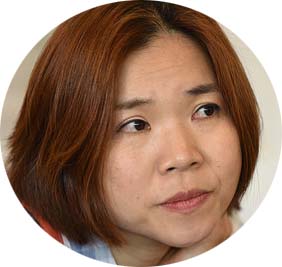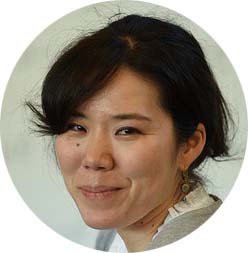Who is new in the Codex Secretariat?
Seconded officers provide a valuable contribution to the work of the Secretariat.
There are currently five food standards officers in the Codex Secretariat. That is not many to run over 20 technical and regional committees in any given year. The two seconded officers currently sponsored by the governments of Japan and the Republic of Korea therefore provide welcome additional technical capacity together with specific knowledge of Codex geographical regions and national systems and processes.

Myoengsin Choi from the Republic of Korea has a background in toxicology and food analysis and joined the Secretariat this year. “Codex plays a central role in food safety. Codex sets the standards and code of practices to help national authorities to regulate on food safety issues” she said. Asked what she felt were major challenges on the horizon she said: “AMR is a big issue in Korea. National governments should work together and in that sense, Codex will play an important role.”

The Codex Secretariat is based in FAO HQ Rome, here illuminated blue for the occasion of World Oceans Day on 8 June

Rain Yamamoto has a background in molecular biology and nutritional epidemiology and has worked in the fields of risk communication and management. “I find the combination of food science and policy making fascinating” she said. In Codex “harmonized rules which everyone can refer to are imperative in the global food market nowadays”, she added. Regarding her specialised area of nutrition, Rain said: “Obesity is a complex problem because there are not only biological and individual factors but also societal, behavioral, commercial and political factors that come into play.”
In the Codex Secretariat a seconded officer will typically stay for three years and become involved in a range of Codex committees, initially learning how international food standards are developed in Codex and then actively taking on responsibility at the committee level to engage with members and operate as a full member of the Codex team.
At the heart of the Codex mandate are the core values of collaboration, inclusiveness, consensus building and transparency. Governmental and non-governmental, public and private organizations alike play a vital role in ensuring Codex texts are of the highest quality and based on sound science.
Codex would have little authority in the field of international standard setting if it did not welcome and acknowledge the valuable contributions made by observers. Expert technical bodies, industry and consumer associations
contribute to the standard-setting process in a spirit of openness, collaboration and transparency.
Intergovernmental organizations (IGOs) and international non-governmental organizations (NGOs) can apply for observer status in Codex in order to attend and put forward their views at every stage of the standard-setting process.
 Current Codex Alimentarius Commission
Current Codex Alimentarius Commission
Who is new in the Codex Secretariat?
Seconded officers provide a valuable contribution to the work of the Secretariat.
There are currently five food standards officers in the Codex Secretariat. That is not many to run over 20 technical and regional committees in any given year. The two seconded officers currently sponsored by the governments of Japan and the Republic of Korea therefore provide welcome additional technical capacity together with specific knowledge of Codex geographical regions and national systems and processes.

Myoengsin Choi from the Republic of Korea has a background in toxicology and food analysis and joined the Secretariat this year. “Codex plays a central role in food safety. Codex sets the standards and code of practices to help national authorities to regulate on food safety issues” she said. Asked what she felt were major challenges on the horizon she said: “AMR is a big issue in Korea. National governments should work together and in that sense, Codex will play an important role.”

The Codex Secretariat is based in FAO HQ Rome, here illuminated blue for the occasion of World Oceans Day on 8 June

Rain Yamamoto has a background in molecular biology and nutritional epidemiology and has worked in the fields of risk communication and management. “I find the combination of food science and policy making fascinating” she said. In Codex “harmonized rules which everyone can refer to are imperative in the global food market nowadays”, she added. Regarding her specialised area of nutrition, Rain said: “Obesity is a complex problem because there are not only biological and individual factors but also societal, behavioral, commercial and political factors that come into play.”
In the Codex Secretariat a seconded officer will typically stay for three years and become involved in a range of Codex committees, initially learning how international food standards are developed in Codex and then actively taking on responsibility at the committee level to engage with members and operate as a full member of the Codex team.
 Codex and Observer
Codex and Observer
around the world since ancient times.
We might not always know where it comes from,
but we expect it to be available, safe and of good quality.










Leave a comment